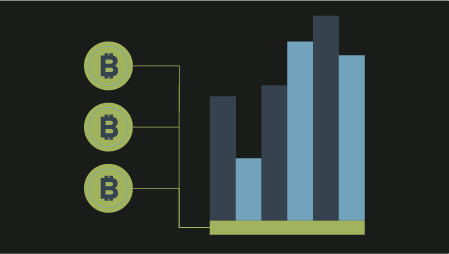Automotive industry is a consumer driven industry where changing demands dominate the way businesses operate. Also, technological advancements contribute the growing needs of end users. Among all recent and trending advancements, blockchain technology is one of the revolutionizing technologies which is bound to transform automotive sector and its applications. We shall discuss here how blockchain technology will refuel automotive applications.
For any industry, there can be sales, accounting, workshop, inventory, supply chain, etc. routine activities. Each of these activities has its own purpose to serve. Some of you, who might have used automotive services in traditional approach, even know how traditional methods influenced automotive industry. Traditionally, every process and transactions were stored in paper documents or a central authority were monitoring over financial transactions and also charging an extra fee for it. Now imagine an automotive blockchain consortium. The possibility of automotive machines and the industry by itself to reach maximum potential to offer best quality product or service is high.
New technologies are invented every day and they are changing every industry as we know. Among all, the blockchain technology is going to make a significant influence on automotive sectors. Today, every automotive business organization is realizing the potential of blockchain and is looking for ways to use blockchain and operate more efficiently and effectively.
Let’s get an idea of how blockchain will help automotive sector that is involved with multiple operations and parties.
Blockchain automotive industry: Connected cars and blockchain
Today cars from automotive industry are connected with various devices via internet and we even have voice-controlled cars. These are called as connected cars. A connected car is interconnected with different systems of a vehicle and with external devices and networks too.
In simple words, a connected car allows the riders to be connected with the cars in terms of mobile accessibility, GPS features, Voice control navigation, etc . For example, connected cars allow you to make calls through Bluetooth system while driving the car or allow you to control music via voice-control or push-buttons in the steering, etc. Using blockchain with connected cars makes it even more interesting and fun in the following ways.
Provides security
With the changing technology, more auto-pilot cars are manufactured and the number of customers who prefer to buy automatic cars are high. Cars are self-driven with automated systems but this also increases the vulnerability of accidents to happen in case of any mistake prevails.
In such cars, the data of the automated systems needs to be highly secure. Only, then there would be minimal or no chances of hacking the system of a connected car. Blockchain provides high levels of security by storing the data in an encrypted format. The data stored can’t be changed as it is stored in the form of a block. To change a data, you have to change the whole system.
This eliminates the threat of vulnerability and also adds value to the automotive car technology.
Breaks down obstacles in financing
One of the major challenges faced by connected cars is in the department of finance. Too many operations take place in automotive sectors. These operations all require different amount of funds to be received and transferred. Any delay in funds receiving or transfer, delays the operations that has to take place too. Such circumstances can be traced and tracked efficiently with blockchain with the help of smart contracts.
For example, if the automotive business, transfers funds to their raw material supplier and they receive it only a week later before which supply has to be made. The supplier sends the raw materials after receiving payment which is already a week late and it takes another week to reach the automotive business. This in turn, delays the manufacturing period too.
With blockchain, all transactions are instant since there is no third party or central authority monitoring over the operations. It allows peer to peer connection anytime, anywhere without borders. There no queueing time and there is no extra charge for using the blockchain service too.
Evident insurance handling
Since blockchain stores data in an encrypted format over decentralized platform, all data are recorded and stored in one place. This makes the data accessible and transparent to all parties involved in the operation. Blockchain stores all agreements digitally which is known as smart contracts.
These smart contracts help to keep track of all transfers and transactions made. These smart contracts also do not allow any data to be edited, modified or changed. Thus, the data stored by blockchain is considered immutable. This reduces the malpractice and fraudulent claims made in the name of insurance in automotive sectors.
Supply chain and meeting the demands by sales
This is yet another major challenge faced by the automotive sector. There is a constant demand for the automotive product and service. There are n number of factors that may influence the industry to obstruct a smooth flow of supply or meet the demand delayed. These factors include delayed money transfer or unavailability of supplier to supply materials or unavailability of logistics provider to meet deliver the product and meet demands, etc.
Blockchain eliminates all these challenges by providing the ability to connect with any local supplier or logistics providers. Thus, meeting demands with delivering products and services at right time and place is easier than ever before. With enterprise blockchain development and its smart contracts, the customer can also track where their product or order is and who is the source. This gives assurance of quality too.
Blockchain ignites automotive sectors to fly high
Assuring compliance and achieving consensus with all parties involved is easier with blockchain. This ensures that all and any operation take place smoothly without any obstructions and hassle free. Blockchain bring out of the box solutions to the traditional challenges faced by automotive industry. With the right integration, the possibilities to achieve maximum potential are high for the automotive sector.



